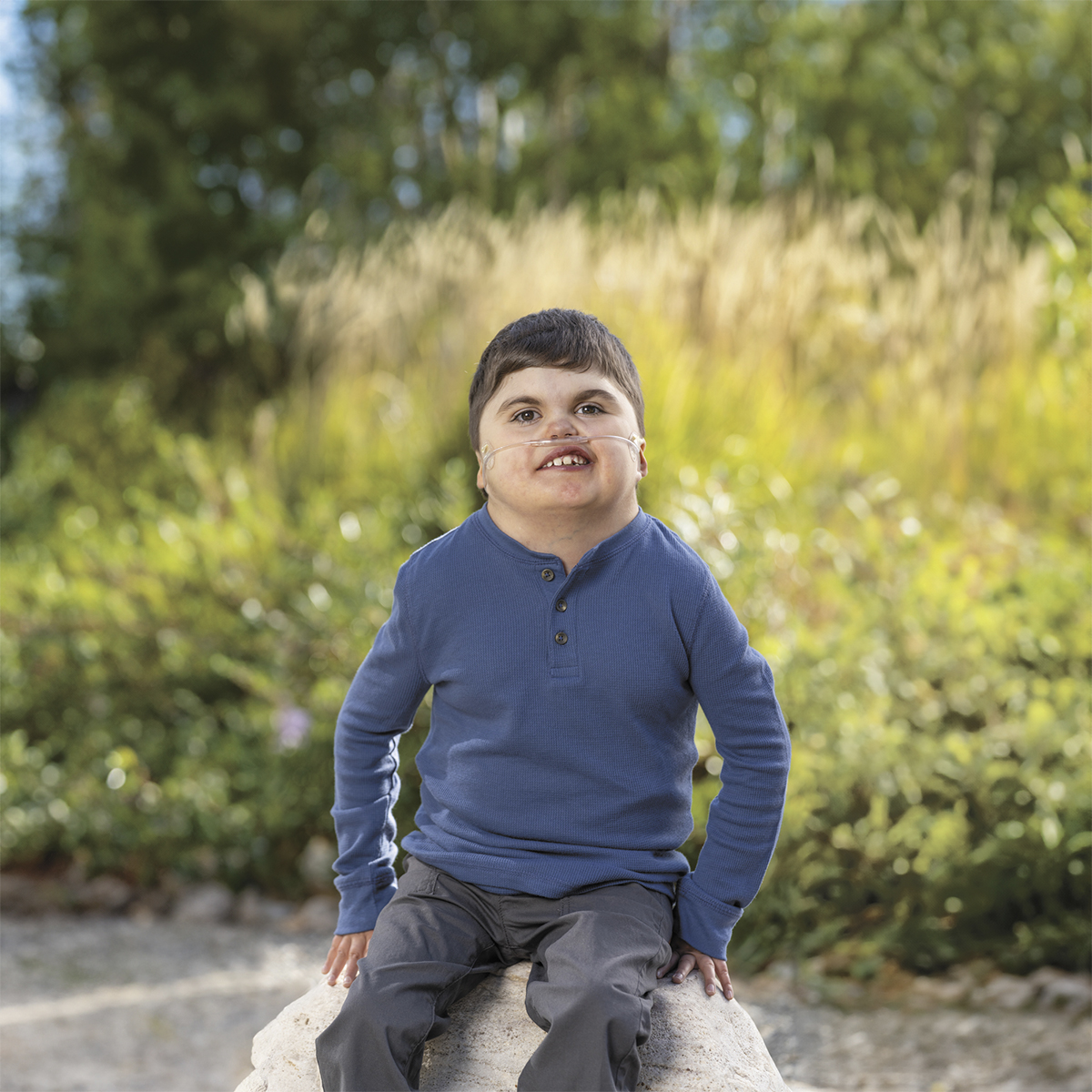Traci vividly recalls the day in June 2012 when she and her husband, Chris, received the worst news of their lives: Jackson, the baby boy Traci was pregnant with, would be born with half a heart.
Their doctor immediately sent the couple to the Children’s Hospital Colorado Heart Institute for specialized care, more testing and imaging, all of which seemed to show that while Jackson would face many obstacles, most of them could be overcome with corrective operations.
A few months later, Jackson was born in an operating room at Children’s Colorado and was scheduled for his first heart surgery four days later. The outlook for Jackson was not good.
“That was the second worst day of my life,” Traci said. “That was the day we learned Jackson had a genetic condition called CHARGE syndrome, and that CHARGE was to blame for his heart condition.”
CHARGE is an acronym for many of the symptoms related to this diagnosis, an extremely complex syndrome that comes with its own laundry list of medical complications. Doctors didn’t think the baby would be able to hear, see, walk, talk or swallow food.
Despite all this heart-wrenching news, the little boy’s first heart surgery went relatively smoothly, and the family was discharged when Jackson was almost 1 month old.
Six months later, Jackson would have an open-heart surgery in which everything that could go wrong seemingly did – his incision became infected, he caught a virus and a very serious bacterial infection. Twice in one week, Traci and Chris almost lost their son.
When David Campbell, MD, Jackson’s cardiac surgeon, learned that the baby’s complications were becoming worse after the second surgery, he quickly returned to the hospital to check on his patient.
“It was a Sunday, his day off, and Dr. Campbell came in anyway,” said Traci. “He stayed in Jackson’s room, refusing to leave. He told me that he wasn’t leaving until Jackson either leveled out, or he personally took Jackson back to surgery.”
For 17 hours, the doctor stayed by Jackson’s side. Finally, the baby boy’s condition stabilized.
After more than 60 days at the hospital, more than 50 of them spent in the Cardiac Intensive Care Unit (CICU), the family brought Jackson home again to begin healing his body – and their souls.
The next several years continued to be challenging for Jackson. He had lots of hospital visits and spent many nights in the CICU with countless trips to cardiology. The little boy went to preschool to provide some sense of normalcy and routine, but all the germs he was exposed to in school constantly threatened his health.
Although Jackson has continued to develop and grow into a funny, friendly elementary schooler, who loves to give people hugs, his future remains uncertain. Kids with Jackson’s heart condition need a series of three heart surgeries to live past their teenage years, but due to the complex nature of Jackson’s body and syndrome, doctors do not believe he would recover from the third surgery.
“Dr. Campbell had to tell me that science hasn’t caught up to Jackson’s body,” said Traci. “So, my message is to plead for more money for research. I refuse to believe that after all that he’s gone through, after spending over a years’ worth of his life in the hospital, that this is it. That this is the best science can offer.”
Recently, some scientific advances have offered new hope for the family. Jackson’s medical team indicated that his heart would likely benefit from a pacemaker. Due to his previous heart procedures, though, surgeons would need to place the little boy’s pacemaker through an incision between his ribs rather than through his sternum - the typical route for pacemaker operations. This would mean he would have scarring on the only side of his chest on which he had not yet had any incisions.
Jackson’s anesthesiologist, who has been a key part of his care team all along, studied this procedure at length to ensure the best possible outcome for the little boy. “Part of the continuity of care that Children’s Colorado provides is matching you with doctors and other professionals who are familiar with your complicated child,” said Traci.
In May 2022, Jackson underwent this challenging procedure and did incredibly well, despite developing unexpected fast heart rhythm problems that required even more medications to be added on. Traci shared the following statistics: congenital heart defects affect one in 100 kids; 30 in 10,000 children are born with half a heart like Jackson; his particular heart condition (Double Outlet Right Ventricle) accounts for less than 2% of those 30 in 10,000; and CHARGE Syndrome affects one in 10,000 births.
“What can I say,” Traci said, “my kid won the medical lottery. Now I need medicine to do its job and catch up to him, so that I can keep him past his teenage years. The clock is ticking. As his mother, I can assure you that the clock is very loud in my ear, ever present at holidays and special events, reminding me that he’s on borrowed time. I pray that research will give Dr. Campbell more tools to put in his toolbox.”

